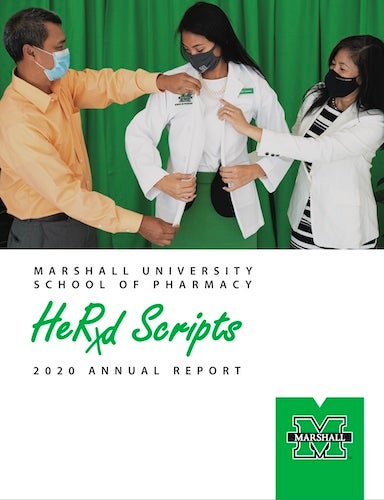FAQs
Question not answered?
Can’t find what you’re looking for? Send us an e-mail.
The Basics
PharmD programs include extensive didactic clinical preparation, hands-on clinical practice experience in a wide array of health care settings, and an emphasis on clinical pharmacy practice. Requirements in the US to becoming a pharmacist include: graduating from a Doctor of Pharmacy from an ACPE accredited program, conducting a specified number of hours in internship under a licensed pharmacist, passing the NAPLEX, and passing a Multi-state Pharmacy Jurisprudence Exam (MPJE).
Residency is an option that is typically one to two years in length post-graduation allowing a student to specialize in a specific area of pharmacy, such as oncology or pediatrics.
residing in West Virginia, their spouses and dependent children, are classified as in-state students.
The Application Process
The pharmacy school application process is very similar to what you may have experienced in high school. You will apply the fall of the year prior to enrolling, then make your decision after you have been admitted. However, we expect you will still be working towards completing the coursework you need.
Marshall allows you to continue your coursework through the summer prior to matriculation. Once you complete your last course, you will submit your final transcripts to the Marshall School of Pharmacy to finalize your admission. You must receive a C or better in each of the prerequisite courses for the course to count towards your application requirements. Marshall does not recognize “minus” or “plus” grades, thus a C- will count toward successful completion. All coursework must be completed prior to arrival at orientation in the fall.
Coursework & Equivalencies
The Interview & Admission
the Standard Behavioral Interview
This is your storytelling time. You will be asked prompts that will require you to tell specific stories. (
Ex: “Tell us about a time you had to show initiative on a project.
The Critical Thinking Test
Are you a critical thinker? Don’t expect to be asked about chemical functions, but rather, questions regarding reasoning. (Ex:
Ex: “If A = B, and B = C, does A = C?”
the Group Dilemma
Because our classrooms require a team-mentality, we want to see you in action with others. You and several “teammates” will receive a dilemma and will be expected to find a solution and present your findings.
Remember, our students, staff, and faculty will be assessing you throughout the process, so be attentive! From lunch to chit chatting while you try on your Marshall white coat, it’s all game.
Tuition & Financial Aid
Experiential Learning
Miscellaneous
- P#: This indicates your year in pharmacy school. (i.e. P1- first year; P2 – second year, etc.)
- IPPE: “Introductory Pharmacy Practice Experience” – These are introductory rotations you’ll experience from year one through year three.
- APPE: “Advanced Pharmacy Practice Experience” – These are advanced rotations that occur in your fourth year.
- OSCE: “Objective Structured Clinical Examination” – This is an assessment based on direct observation of student performance to evaluate basic pharmacy clinical tasks, such as taking a patient history, writing a prescription, or advising a patient.
- MUSOP: “Marshall University School of Pharmacy”
- ACPE: “Accreditation Council for Pharmacy Education” – The accrediting body for all national schools of pharmacy.
- APhA-ASP: “American Pharmacists Association Academy of Student Pharmacists,” one of the student organizations at the Marshall School of Pharmacy.
- SSHP: “Student Society of Health Systems Pharmacists,” a branch of the American Society of Health Systems Pharmacists
